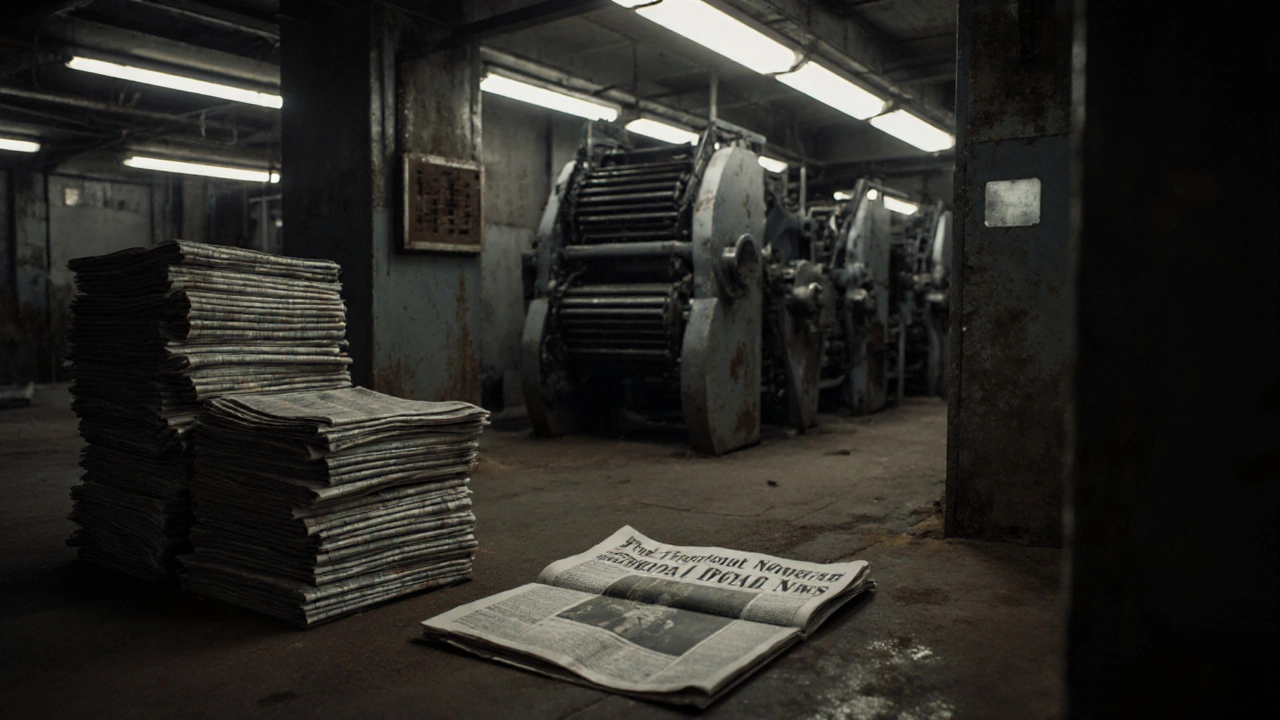News Industry Collapse: Why Trust in Media Is Crumbling and What It Means for London
When the news industry collapse, the steady decline of traditional journalism as a reliable, funded, and respected public service. Also known as media decay, it’s not just about newspapers shutting down—it’s about the slow erosion of facts, accountability, and shared understanding in cities like London. You can feel it in the silence where local reporting used to be. The Evening Standard’s budget cuts. The Daily Mirror’s reduced print runs. The BBC’s funding squeeze. These aren’t isolated problems—they’re symptoms of a system breaking under profit pressure, clickbait culture, and the rise of social media as the default news source.
Behind the media trust, the public’s belief that news organizations report truthfully and without hidden agendas. Also known as journalistic credibility, it’s the glue holding democracy together. is a simple truth: people don’t trust what they can’t see being made. When a reporter isn’t in the room at a council meeting, when a fact-checker is gone, when a story is rewritten by an algorithm instead of an editor, trust vanishes. And it’s not just the Daily Mail or the Guardian—every outlet is fighting the same battle. Data shows UK readers now spend more time on TikTok and X than on any newspaper’s website. That’s not preference—it’s abandonment.
The UK news outlets, local and national media organizations that deliver news to British audiences, from the BBC to the Daily Express. Also known as British press, they’re the last line of defense against misinformation. are caught between two worlds: the old model of paid subscriptions and print ads, and the new world of free content, viral outrage, and ad-blockers. Many have tried to survive by chasing clicks—sensational headlines, misleading thumbnails, half-truths dressed as breaking news. But that just feeds the cycle. People don’t trust the news because it’s become unpredictable, inconsistent, and often wrong. Look at the confusion around XEC and XBB.1.16 variants—some outlets reported real risks, others invented symptoms. When that happens, people stop listening.
And London? It’s ground zero. The city’s neighborhoods used to have local reporters covering school closures, housing disputes, and Tube delays. Now, those stories get buried under national noise or ignored entirely. The result? People feel unseen. They turn to Facebook groups or Telegram channels for updates—and those aren’t always reliable. The news industry collapse isn’t a headline—it’s a daily reality for thousands who can’t find clear, accurate information about their own streets.
But here’s the thing: not all is lost. The Guardian still runs deep investigations. BBC News UK keeps its impartiality standards—even if critics complain. The Daily Express still covers pensions and energy bills like they matter. These outlets aren’t perfect, but they’re trying. And that’s why this collection matters. Below, you’ll find real stories from real journalists who still show up—whether it’s explaining why the NHS is in crisis, how homelessness is tied to housing policy, or what’s really behind the latest COVID variant. These aren’t clickbait. They’re the last remaining anchors in a storm. Read them. Share them. Because if we stop paying attention, the collapse won’t just be financial—it’ll be cultural.
Why are newspapers dying? The real reasons behind the decline of print news
Newspapers are disappearing because digital news is faster, cheaper, and free. Print revenue collapsed as ads vanished, trust eroded, and readers switched to phones. Local papers are gone-and with them, accountability.
